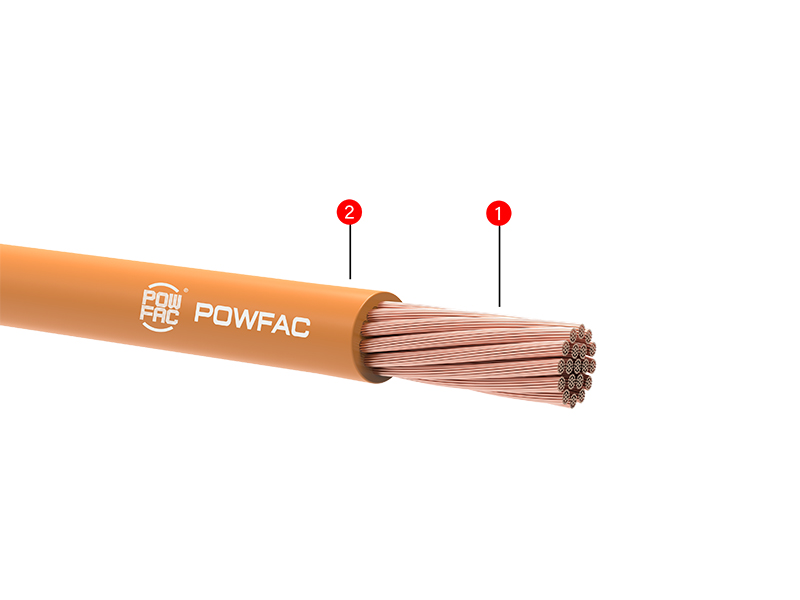The Significance of DC Copper Cables in Electrical Systems
 Apr 22, 2024|
Apr 22, 2024| View:504
View:504DC copper cables play a crucial role in electrical systems, facilitating the transmission of direct current (DC) power from one point to another. These cables are specifically designed to efficiently carry electrical currents in a wide range of applications, including renewable energy systems, automotive electronics, telecommunications, and industrial machinery. In this article, we will explore the significance of DC copper cables and highlight their key features and advantages in modern electrical infrastructure.
High Conductivity:
Copper is widely recognized for its excellent electrical conductivity, making it the preferred choice for DC cables. The low resistance of copper allows for the efficient and reliable transmission of electrical currents over long distances. This high conductivity minimizes power loss and ensures that energy is efficiently delivered to the intended destinations. DC copper cables, with their superior conductivity properties, are essential for maintaining the integrity and efficiency of electrical systems.Low Resistance and Heat Dissipation:
DC copper cables exhibit low resistance, which is essential for minimizing power losses during transmission. The low resistance characteristic ensures that a significant portion of the electrical energy reaches its intended destination, reducing energy waste. Additionally, copper's high thermal conductivity enables effective heat dissipation, preventing excessive heat buildup along the cable. This feature enhances the overall safety and longevity of the electrical infrastructure, reducing the risk of overheating and potential damage.Flexibility and Durability:
DC copper cables are known for their flexibility and durability, making them suitable for a wide range of applications. The malleability of copper allows for easy bending and installation in complex configurations, making it adaptable to various installation requirements. Furthermore, copper exhibits excellent resistance to corrosion, moisture, and environmental factors, ensuring the longevity and reliability of DC cable systems even in demanding conditions. The combination of flexibility and durability makes copper cables a preferred choice in both indoor and outdoor electrical installations.
Compatibility with High Current Applications:
DC copper cables are particularly suitable for applications that require high current carrying capacities. Industries such as renewable energy, electric vehicles, and data centers rely on DC power systems that demand the efficient transmission of substantial electrical currents. Copper's superior conductivity, low resistance, and thermal stability make it an ideal choice for these high-power applications. DC copper cables enable the safe and reliable distribution of high currents, ensuring optimal performance and minimizing power transmission losses.Cost-Effectiveness:
DC copper cables offer a cost-effective solution for electrical systems, considering their long lifespan and high performance. Copper, as a readily available and recyclable material, provides a cost-efficient option for cable manufacturing. The durability and reliability of copper cables contribute to reduced maintenance and replacement costs over time. Additionally, the efficient power transmission capabilities of DC copper cables result in energy savings, further enhancing their cost-effectiveness in the long run.
DC copper cables serve as vital components in electrical systems, ensuring the efficient and reliable transmission of direct current power. Their high conductivity, low resistance, heat dissipation capabilities, flexibility, and durability make them indispensable for various applications. DC copper cables enable the safe and optimal distribution of electrical currents, supporting industries such as renewable energy, automotive electronics, telecommunications, and industrial machinery. With their cost-effectiveness and long lifespan, DC copper cables continue to play a significant role in modern electrical infrastructure, contributing to efficient energy utilization and sustainable development.










